|
Venetian Snares, "Find Candace"
Hymen
 Venetian Snares' latest release is a sequel of sorts to his best album, 2001's masterpiece of hardcore electronic sadism Doll Doll Doll. That album had a cohesive theme and a powerful diabolical precision that Aaron Funk has never matched, though he has released many fine albums since. Find Candace picks up where Doll Doll Doll left off, and exacts a virtuoso sonic attack that matches the original for its sheer adrenaline rush of sound. Much like injecting crystal meth directly into the jugular vein, this feels dirty and dangerous, and at high volume it has the ability to quicken the pulse and make the palms sweat. The agitation begins with the first track, an incredible remix of "Befriend a Child Killer." Stuttering, hyper-accelerated drum n' bass hits are coaxed out, a little at a time, until the song explodes like a money shot in the face with a splattered wall of scattershot rhythms and mind-wrenching acid lines. One of those generic dancehall singers that always heard in hardcore jungle songs pipes in, but his voice has been pitched down and distorted to sound monstrous and Satanic. This is extremely scary music that immediately puts to shame most of the self-consciously transgressive industrial music made for in recent years. Aaron Funk's menacing, soulless music reminds me of the experience of hearing Too Dark Park and Last Rights-era Skinny Puppy in my high school days as I was unprepared to hear something so dark and relentlessly aggressive and amoral. The music is devoid of all emotion other than a raw, pulsating desire for Dionysian thrills and hyperspeed excitement, like a digital version of Slayer's masterpiece Reign in Blood. The second track "Mercy Funk" is the Snares' attempt to make a pounding rave anthem that is designed to kill any ravers that attempt to dance to it. Listening to the seven-minute "Find Candace" is like the experience taking a walk in the park at night, witnessing a gang rape in progress, and joining in. Later, you feel remorse, so you go to a church. Suddenly, you have a change of heart and decide to burn the church down, run out into the street and howl at the moon. "Yor" begins as an ominous ambient track constructed from multitracked voices a la Gyorgi Ligeti, but it quickly slaps you in the face with deep, percussive punches and samples of muffled graveyard screams. The brilliant "Children's Limbo" is the successor to Doll Doll Doll's best track "Dollmaker". The track begins with a British child describing the four levels of hell against an innocently funky breakbeat, but soon the scary synthesizer squeals off into the drum n' bass inferno once again. "Dolleater" begins with a series of high-pitched, strident tones and quickly becomes an orgy of unfocused rage, penetrating the eardrums with an ecstasy of percussive punishment. The album ends with the mercifully short "Blind Candace," a baroque pipe organ melody which segues into a kind of stop-start death metal dirge, complete with live drums and twisted screams. A trumpet calls out desparately, and I am left wondering what the hell Aaron Funk has managed to do to my mind. I must go out and find a small, innocent-looking child to defile now. - Jonathan Dean
Venetian Snares' latest release is a sequel of sorts to his best album, 2001's masterpiece of hardcore electronic sadism Doll Doll Doll. That album had a cohesive theme and a powerful diabolical precision that Aaron Funk has never matched, though he has released many fine albums since. Find Candace picks up where Doll Doll Doll left off, and exacts a virtuoso sonic attack that matches the original for its sheer adrenaline rush of sound. Much like injecting crystal meth directly into the jugular vein, this feels dirty and dangerous, and at high volume it has the ability to quicken the pulse and make the palms sweat. The agitation begins with the first track, an incredible remix of "Befriend a Child Killer." Stuttering, hyper-accelerated drum n' bass hits are coaxed out, a little at a time, until the song explodes like a money shot in the face with a splattered wall of scattershot rhythms and mind-wrenching acid lines. One of those generic dancehall singers that always heard in hardcore jungle songs pipes in, but his voice has been pitched down and distorted to sound monstrous and Satanic. This is extremely scary music that immediately puts to shame most of the self-consciously transgressive industrial music made for in recent years. Aaron Funk's menacing, soulless music reminds me of the experience of hearing Too Dark Park and Last Rights-era Skinny Puppy in my high school days as I was unprepared to hear something so dark and relentlessly aggressive and amoral. The music is devoid of all emotion other than a raw, pulsating desire for Dionysian thrills and hyperspeed excitement, like a digital version of Slayer's masterpiece Reign in Blood. The second track "Mercy Funk" is the Snares' attempt to make a pounding rave anthem that is designed to kill any ravers that attempt to dance to it. Listening to the seven-minute "Find Candace" is like the experience taking a walk in the park at night, witnessing a gang rape in progress, and joining in. Later, you feel remorse, so you go to a church. Suddenly, you have a change of heart and decide to burn the church down, run out into the street and howl at the moon. "Yor" begins as an ominous ambient track constructed from multitracked voices a la Gyorgi Ligeti, but it quickly slaps you in the face with deep, percussive punches and samples of muffled graveyard screams. The brilliant "Children's Limbo" is the successor to Doll Doll Doll's best track "Dollmaker". The track begins with a British child describing the four levels of hell against an innocently funky breakbeat, but soon the scary synthesizer squeals off into the drum n' bass inferno once again. "Dolleater" begins with a series of high-pitched, strident tones and quickly becomes an orgy of unfocused rage, penetrating the eardrums with an ecstasy of percussive punishment. The album ends with the mercifully short "Blind Candace," a baroque pipe organ melody which segues into a kind of stop-start death metal dirge, complete with live drums and twisted screams. A trumpet calls out desparately, and I am left wondering what the hell Aaron Funk has managed to do to my mind. I must go out and find a small, innocent-looking child to defile now. - Jonathan Dean
samples:
matt elliott, "The mess we made"
Merge (US) / Domino (UK)
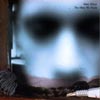 Senses develop with age. As a child, we tend to have a limited palette, with a strong preference for sweets and simple things. It's hard to enjoy something that can be bitter yet addictively desirable like alcohol, cigars, or raw fish. Likewise, it's also difficult to appreciate and fall in love with artwork that can be both incredibly sad yet stunningly beautiful all at the same time. With age, Matt Elliott has shed his Third Eye Foundation guise, stripped the layers of distortion, aggressive percussion, snotty song title humor, and the result is beyond imagination. The Mess We Made opens like an offpitch phonograph with twisted piano and horn sounds—muted, surrealistic, and ectoplasmic—accompanying his faint and ghostly voice. (That in mind, it's hardly a surprise that the artwork looks more like a Brothers Quay production than ever before!) It's sad, mildy horrific, but captivating, almost as if Elliot is crawling through the layers of freshly packed dirt from being mistakenly buried alive. Over the course of the next seven complex miniature masterpieces, only rarely are electronic beats introduced, and while it's not difficult to conecptually connect the dots to moments on the final Third Eye Foundation release, Little Lost Soul, it's tough to imagine this is the same person who cranked out some of the most clumsy, distorted noises on releases as far back as 1997's Ghost. Perhaps being a dad is what forced him to be quiet and work late at night, as The Mess is very quiet, late night listening material. Tinkling melodies frequently play like cinematic themes by worn out music boxes, meandering in and out, mostly without rigid metronomic beats, all provided by the deft multilayering of Elliot's voice, guitar, piano, bells, accordion (or melodica), and other instrument playing (with the exception of a couple female vocal bits here and there). Transitions between drastically contrasting movements (from the beat-less score to post-drum 'n bass to a sea chanty) are amazingly seamless and fluid, and the eerie feel is never lost or compromised. With every listen I find myself surprised, frequently having to do double takes, kind of like a book where you keep asking yourself "did I really just read that?" Thanks to the power of media playback, rewinding and re-listening is possible, but like a David Lynch film, it's best to force yourself to just sit there and soak in the whole damned thing start to finish. - Jon Whitney
Senses develop with age. As a child, we tend to have a limited palette, with a strong preference for sweets and simple things. It's hard to enjoy something that can be bitter yet addictively desirable like alcohol, cigars, or raw fish. Likewise, it's also difficult to appreciate and fall in love with artwork that can be both incredibly sad yet stunningly beautiful all at the same time. With age, Matt Elliott has shed his Third Eye Foundation guise, stripped the layers of distortion, aggressive percussion, snotty song title humor, and the result is beyond imagination. The Mess We Made opens like an offpitch phonograph with twisted piano and horn sounds—muted, surrealistic, and ectoplasmic—accompanying his faint and ghostly voice. (That in mind, it's hardly a surprise that the artwork looks more like a Brothers Quay production than ever before!) It's sad, mildy horrific, but captivating, almost as if Elliot is crawling through the layers of freshly packed dirt from being mistakenly buried alive. Over the course of the next seven complex miniature masterpieces, only rarely are electronic beats introduced, and while it's not difficult to conecptually connect the dots to moments on the final Third Eye Foundation release, Little Lost Soul, it's tough to imagine this is the same person who cranked out some of the most clumsy, distorted noises on releases as far back as 1997's Ghost. Perhaps being a dad is what forced him to be quiet and work late at night, as The Mess is very quiet, late night listening material. Tinkling melodies frequently play like cinematic themes by worn out music boxes, meandering in and out, mostly without rigid metronomic beats, all provided by the deft multilayering of Elliot's voice, guitar, piano, bells, accordion (or melodica), and other instrument playing (with the exception of a couple female vocal bits here and there). Transitions between drastically contrasting movements (from the beat-less score to post-drum 'n bass to a sea chanty) are amazingly seamless and fluid, and the eerie feel is never lost or compromised. With every listen I find myself surprised, frequently having to do double takes, kind of like a book where you keep asking yourself "did I really just read that?" Thanks to the power of media playback, rewinding and re-listening is possible, but like a David Lynch film, it's best to force yourself to just sit there and soak in the whole damned thing start to finish. - Jon Whitney
samples:
PREFUSE 73, "ONE WORD EXTINGUISHER"
Warp
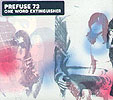 At one time the main focus in hip hop music were the MCs; their social and (at times) political messages relayed with quick-cut rhymes, clever wordplay and attitude over a cool, sampled yet repetitive backing track. Over the last bunch of years, the role of DJ/producer has gained as much, if not more attention than their MC counterparts, which, in turn, has pushed the envelope of the genre. With One Word Extinguisher, the second full length release as Prefuse 73, multi-aliased producer Scott Herren continues to creatively fuse hip hop beats and sampling with certain elements of electronic music to form a unique compositional style. A disc of mostly instrumental tracks, Herren enlists the MC skills of Diverse to drive the synth-gurgling of "Plastic" and a brief rhythmic social commentary from Mr. Lif on the ominous progressions of "Huevos With Jeff and Rani." The use of clipped vocal textures and spoken word samples also factor in throughout the disc's 23 tracks. The steady polyrhythmic beat shifting of "The Color of Tempo" plays off a choppy melody played by what could either be a twisted soprano saxophone sample or a really warbly synth patch for an update on some '70s instrumental soul music. Teaming with fellow producer Daedelus, the speedy keyboard tremolo and human beatbox propelled "Busy Signal (Make You Go Bombing Mix)" swells with string samples and sneaks in some bass clarinet for an upbeat yet surprisingly eerie mix. The simple rhythm section groove supporting a sampled saxophone motif, strings and simple xylophone on "Perverted Undertone" come across as paramount in feel for one of the disc's more subtle highlights. Skateboarding legend Tommy Guerrero lends his soulful multi-tracked guitar playing to "Strom Returns" as the latin-jazz element in the hip hop concept. Herren continues to update up the usual straight-ahead beats with his clever use polyrhythmics as heard on last year's The '92 vs '02 Collection EP and the percussive sampling style from his Vocal Studies + Uprock Narratives debut. Over the span of sixty minutes, the tunes move between flashes of excitement and some great compositional grooves with a few interludes that give the disc a natural flow. With Prefuse 73 currently on tour, this new material will make a great live set even more entertaining. - Gord Fynes
At one time the main focus in hip hop music were the MCs; their social and (at times) political messages relayed with quick-cut rhymes, clever wordplay and attitude over a cool, sampled yet repetitive backing track. Over the last bunch of years, the role of DJ/producer has gained as much, if not more attention than their MC counterparts, which, in turn, has pushed the envelope of the genre. With One Word Extinguisher, the second full length release as Prefuse 73, multi-aliased producer Scott Herren continues to creatively fuse hip hop beats and sampling with certain elements of electronic music to form a unique compositional style. A disc of mostly instrumental tracks, Herren enlists the MC skills of Diverse to drive the synth-gurgling of "Plastic" and a brief rhythmic social commentary from Mr. Lif on the ominous progressions of "Huevos With Jeff and Rani." The use of clipped vocal textures and spoken word samples also factor in throughout the disc's 23 tracks. The steady polyrhythmic beat shifting of "The Color of Tempo" plays off a choppy melody played by what could either be a twisted soprano saxophone sample or a really warbly synth patch for an update on some '70s instrumental soul music. Teaming with fellow producer Daedelus, the speedy keyboard tremolo and human beatbox propelled "Busy Signal (Make You Go Bombing Mix)" swells with string samples and sneaks in some bass clarinet for an upbeat yet surprisingly eerie mix. The simple rhythm section groove supporting a sampled saxophone motif, strings and simple xylophone on "Perverted Undertone" come across as paramount in feel for one of the disc's more subtle highlights. Skateboarding legend Tommy Guerrero lends his soulful multi-tracked guitar playing to "Strom Returns" as the latin-jazz element in the hip hop concept. Herren continues to update up the usual straight-ahead beats with his clever use polyrhythmics as heard on last year's The '92 vs '02 Collection EP and the percussive sampling style from his Vocal Studies + Uprock Narratives debut. Over the span of sixty minutes, the tunes move between flashes of excitement and some great compositional grooves with a few interludes that give the disc a natural flow. With Prefuse 73 currently on tour, this new material will make a great live set even more entertaining. - Gord Fynes
samples:
Yellow6/Rothko/Landing, "New Found Land"
The Music Fellowship
 The Music Fellowship begins their Tryyptych Series—EPs with three 20+ minute tracks ("tryyps") by three separate but similar artists—with New Found Land, in what promises to be a very compelling set for those who love ambient instrumental guitar rock. Landing are well known for creating emotion-stirring, spine-shivering sounds, while Yellow6 and Rothko, projects by solitary men Jon Attwood and Mark Beazley respectively, get respect not just for their ethereal passages, but also for accomplishing their singular visions alone. Together, the music of these bands makes for a calming, gentle ride, with the exception of a few punches of noise along the way. Although all three artists have over 20 minutes of music a piece, they divide their large compositions into sections. The expansive sound of Attwood's Yellow6 seems very exploratory in nature, with most sounds composed and altered in a digital studio. Each movement has an ambient backing track, digital percussion, and sly flourishes over the top, from guitar to keyboard lines. Yellow6 is very structured this time around, too, which makes the music all the more affecting, with emotions running high and the whole gamut. Rothko, by contrast, seems much more interested in off-the-wall sounds and sources, from the music box and field recording on the first "Halftone and Metatone" to the drone and plucked bass of several of the others. It interested me that the three artists took little or no effort in making their music blend or run together, either, which was especially surprising for Rothko, where all of Beazley's tracks bear the same name, with only a number distinction at the end. This is no slight, however, as each track does stand very well on its own, it just would have made more sense for 20 minutes of music to bear a common theme and intertwine. Landing, whose music here is fine an example of how far improvisation can carry when all members are on the same page and in the same zone. Landing's songs seem more like songs than they have put forth in the past. Some fade in, the vocals begin, and when they've seem to run their course, the song fades out again. It's the musical akin to a Christopher Guest movie: miles and miles of tape captured, but in the end it's all edited down to the finer moments. It's not what I expected from Landing, but quite a pleasant surprise, as each song increases in beauty as the CD plays on. This EP is a great start to the series, and hopefully the rest will continue in the same vein. - Rob Devlin
The Music Fellowship begins their Tryyptych Series—EPs with three 20+ minute tracks ("tryyps") by three separate but similar artists—with New Found Land, in what promises to be a very compelling set for those who love ambient instrumental guitar rock. Landing are well known for creating emotion-stirring, spine-shivering sounds, while Yellow6 and Rothko, projects by solitary men Jon Attwood and Mark Beazley respectively, get respect not just for their ethereal passages, but also for accomplishing their singular visions alone. Together, the music of these bands makes for a calming, gentle ride, with the exception of a few punches of noise along the way. Although all three artists have over 20 minutes of music a piece, they divide their large compositions into sections. The expansive sound of Attwood's Yellow6 seems very exploratory in nature, with most sounds composed and altered in a digital studio. Each movement has an ambient backing track, digital percussion, and sly flourishes over the top, from guitar to keyboard lines. Yellow6 is very structured this time around, too, which makes the music all the more affecting, with emotions running high and the whole gamut. Rothko, by contrast, seems much more interested in off-the-wall sounds and sources, from the music box and field recording on the first "Halftone and Metatone" to the drone and plucked bass of several of the others. It interested me that the three artists took little or no effort in making their music blend or run together, either, which was especially surprising for Rothko, where all of Beazley's tracks bear the same name, with only a number distinction at the end. This is no slight, however, as each track does stand very well on its own, it just would have made more sense for 20 minutes of music to bear a common theme and intertwine. Landing, whose music here is fine an example of how far improvisation can carry when all members are on the same page and in the same zone. Landing's songs seem more like songs than they have put forth in the past. Some fade in, the vocals begin, and when they've seem to run their course, the song fades out again. It's the musical akin to a Christopher Guest movie: miles and miles of tape captured, but in the end it's all edited down to the finer moments. It's not what I expected from Landing, but quite a pleasant surprise, as each song increases in beauty as the CD plays on. This EP is a great start to the series, and hopefully the rest will continue in the same vein. - Rob Devlin
samples:
Kinski/Paik/Surface of Eceyon, "Crickets and Fireflies"
Music Fellowship
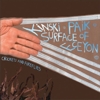 Part two in The Music Fellowship Triptychs series finds more of the same beautiful instrumental noise rock, just from different talents. Kinski, Paik, and Surface of Eceyon have all gained acclaim for their individual and unique contributions to the drone rock landscape, that is becoming more of a pastiche these days. All the groups have different sounds when listened to separately, but together, as they are in this series, they tend to sound very much the same. This is not necessarily a mark against them, however, as the more the music has the same organic feel and structure, the more it comes off as a cohesive release and therefore more palatable. All three bands have new full-length records coming out on separate labels later in the year, and if this EP is any indication those records could level a city. On the cleverly-titled "Keep Clear of Me, I Am Maneuvering With Difficulty," Kinski continues with their typical sonic explorations, this time in one track with three separate movements. Completely improvised, the music blends nicely into each piece, slowly building to start, then unleashing in a crushing rhythm and a bleeding, wailing distortion of guitars. It annoys successfully, even while it impresses, then fades out in a lovely buzz and tremble meld of organ and synth sounds, as if the song wants to give your ears a salve. Paik doesn't wade in at all, just menaces with a brooding bassline and feedback. Echoed guitars join to up the noise factor, and then the hammer falls with the measured persistence of the drums. Paik's second song, "Eva," is lighter in tone, but a well-crafted selection that leads well into the music of Surface of Eceyon. With no explanation as to the slight change in their name (nor an explanation as to why both spellings appear in the booklet), this brave collaboration between members of Landing and Yume Bitsu with Phil Jenkins gives a taste of their conception in their composition. "Concert of Stars" was recorded during one of the band's early sessions together, though it sounds like an evolution of sound. Pure improvisation from the vessyl informs their instruments and minds to create a thirty-minute opus of ambient beauty. It certainly bears an appropriate name, too, as I could easily enjoy a visit to the planetarium if this was the soundtrack. This second part of the Tryyptych Series rivals the first and is worth a concentrated listen, even if some of the music is better absorbed then heard. - Rob Devlin
Part two in The Music Fellowship Triptychs series finds more of the same beautiful instrumental noise rock, just from different talents. Kinski, Paik, and Surface of Eceyon have all gained acclaim for their individual and unique contributions to the drone rock landscape, that is becoming more of a pastiche these days. All the groups have different sounds when listened to separately, but together, as they are in this series, they tend to sound very much the same. This is not necessarily a mark against them, however, as the more the music has the same organic feel and structure, the more it comes off as a cohesive release and therefore more palatable. All three bands have new full-length records coming out on separate labels later in the year, and if this EP is any indication those records could level a city. On the cleverly-titled "Keep Clear of Me, I Am Maneuvering With Difficulty," Kinski continues with their typical sonic explorations, this time in one track with three separate movements. Completely improvised, the music blends nicely into each piece, slowly building to start, then unleashing in a crushing rhythm and a bleeding, wailing distortion of guitars. It annoys successfully, even while it impresses, then fades out in a lovely buzz and tremble meld of organ and synth sounds, as if the song wants to give your ears a salve. Paik doesn't wade in at all, just menaces with a brooding bassline and feedback. Echoed guitars join to up the noise factor, and then the hammer falls with the measured persistence of the drums. Paik's second song, "Eva," is lighter in tone, but a well-crafted selection that leads well into the music of Surface of Eceyon. With no explanation as to the slight change in their name (nor an explanation as to why both spellings appear in the booklet), this brave collaboration between members of Landing and Yume Bitsu with Phil Jenkins gives a taste of their conception in their composition. "Concert of Stars" was recorded during one of the band's early sessions together, though it sounds like an evolution of sound. Pure improvisation from the vessyl informs their instruments and minds to create a thirty-minute opus of ambient beauty. It certainly bears an appropriate name, too, as I could easily enjoy a visit to the planetarium if this was the soundtrack. This second part of the Tryyptych Series rivals the first and is worth a concentrated listen, even if some of the music is better absorbed then heard. - Rob Devlin
samples:
Goldfrapp, "Black Cherry"
Mute
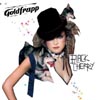 When I learned several months ago that Goldfrapp's forthcoming second album was to be titled Black Cherry, my first thought was how fitting of a title it would be. After falling in love with the sweet, dark, succulent meoldies on their outstanding debut, Felt Mountain, I anticipated hearing what the band had been up to in the studio for the past two and a half years. It seems that in the interim, Alison Goldfrapp and Will Gregory have largely changed their style. Straying from the moody, cinematic quality of their previous record, Black Cherry is a synth-driven, erotically-charged collection of songs combining Giorgio Moroder, Add N to [X] and Olivia Newton-John circa 1979. Even Alison herself has undergone a makeover: gone are the Heidi braids and muddy rubber boots—the eye-catching photo of her inside the sleeve reflects a cross between Elegant Gothic Lolita and Dorothy of Kansas.
When I learned several months ago that Goldfrapp's forthcoming second album was to be titled Black Cherry, my first thought was how fitting of a title it would be. After falling in love with the sweet, dark, succulent meoldies on their outstanding debut, Felt Mountain, I anticipated hearing what the band had been up to in the studio for the past two and a half years. It seems that in the interim, Alison Goldfrapp and Will Gregory have largely changed their style. Straying from the moody, cinematic quality of their previous record, Black Cherry is a synth-driven, erotically-charged collection of songs combining Giorgio Moroder, Add N to [X] and Olivia Newton-John circa 1979. Even Alison herself has undergone a makeover: gone are the Heidi braids and muddy rubber boots—the eye-catching photo of her inside the sleeve reflects a cross between Elegant Gothic Lolita and Dorothy of Kansas.
"Train," the first single from the album, is bound for dancefloor fame. Alison is in full-on diva mode, and the thumping bassline and jagged synth rhythms are bound to make jaws drop from those who were expecting the subtlety found on tracks like "Utopia" from Goldfrapp's debut. This track is followed by the title cut, a meandering, bland mix of uninspired string arrangements and monotone vocals. It is evidence of one of the album's weak spot: the down-tempo songs, like this, "Hairy Trees" and "Forever," are sappy and nearly indistinguishable. This time around, Goldfrapp seem to be much more comfortable when they're overt. Their sexual themes lyrically reflect this as well, and have been expanded from Felt Mountain nearly to the point of being gratuitous. Hints of eroticism found on the previous record have become morphed into naughtily playful lyrics like "put your dirty angel face / between my legs and knicker lace" on one of the strongest tracks, "Twist." Meanwhile, "Strict Machine" features a sexy beat throughout that resembles the cracking of a whip.
All in all, while Black Cherry is wholly entertaining, it does not bring to bear the inventiveness and emotional power of its predecessor. Additionally, Alison's voice does not show the range she's capable of (no yodeling this time around), although musically, the synths are very expertly and creatively handled by the duo. At its best, it's a sweet, dark, succulent pop record, but if you're searching for something mindblowing, best not to look here. - Jessica Tibbits
samples:
Aarktica, "Pure Tone Audiometry"
Silber
 The many styles of Jon DeRosa are on full display these days, with new albums from Pale Horse and Rider and this project being released so close to each other. Where DeRosa is getting a lot of press these days for PHaR, it is Aarktica that started his journey into somber melodies, though for his latest, it seems the more song-like structure of the former informs the latter. Pure Tone Audiometry refers to a hearing test that DeRosa had when he lost the hearing in his right ear several years ago. It is also the most rock-oriented of DeRosa's releases. Where previous Aarktica recordings were primarily drone and buzz, and PHaR very acoustic and downbeat, this music is full-sounding, almost playful in places, and very mapped-out. Sounds appear and disappear, spliced in and out with the skill of a surgeon, and everything dances around your ears like it was born to be there. The chilling vocals on the opening track almost drown out the science film wild track, and all together it sounds like a chorus of technology, humanity, and the otherworldly. Elsewhere, the electro-pop returns, with electric guitar, programmed beats, and the sullen but liquid voice of DeRosa gracing the other tones. Then, real drums snap into focus, and the sound of a full band, something unheard of on Aarktica releases, fills the speakers and pulses with raw energy. The harmony chorus vocals all over the record breathe real life into this material, so much so that it alone almost eclipses all his other work. This is not to say that DeRosa has left behind his old devices, as "Snowstorm Ruins Birthday" and "Water Wakes Dead Cells" clearly display. He has, however, found a growth, a leap forward, that was not expected, but certainly most welcome. - Rob Devlin
The many styles of Jon DeRosa are on full display these days, with new albums from Pale Horse and Rider and this project being released so close to each other. Where DeRosa is getting a lot of press these days for PHaR, it is Aarktica that started his journey into somber melodies, though for his latest, it seems the more song-like structure of the former informs the latter. Pure Tone Audiometry refers to a hearing test that DeRosa had when he lost the hearing in his right ear several years ago. It is also the most rock-oriented of DeRosa's releases. Where previous Aarktica recordings were primarily drone and buzz, and PHaR very acoustic and downbeat, this music is full-sounding, almost playful in places, and very mapped-out. Sounds appear and disappear, spliced in and out with the skill of a surgeon, and everything dances around your ears like it was born to be there. The chilling vocals on the opening track almost drown out the science film wild track, and all together it sounds like a chorus of technology, humanity, and the otherworldly. Elsewhere, the electro-pop returns, with electric guitar, programmed beats, and the sullen but liquid voice of DeRosa gracing the other tones. Then, real drums snap into focus, and the sound of a full band, something unheard of on Aarktica releases, fills the speakers and pulses with raw energy. The harmony chorus vocals all over the record breathe real life into this material, so much so that it alone almost eclipses all his other work. This is not to say that DeRosa has left behind his old devices, as "Snowstorm Ruins Birthday" and "Water Wakes Dead Cells" clearly display. He has, however, found a growth, a leap forward, that was not expected, but certainly most welcome. - Rob Devlin
samples:
"Pet Projects: The Brian Wilson Productions"
Ace Records
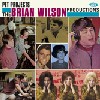 I am definitely and unashamedly one of the legion of obsessive fans of Brian Wilson. I wholeheartedly agree with all of the critics who never tire of declaring Wilson a genius of pop songcraft and production. I have faithfully collected all the prime Beach Boys material—LP reissues, box sets, 45s, live albums, bootlegs, "Best Of" albums, etc. To my already absurd Wilson collection, I can now add this interesting archival disc, recently released by Ace Records of London. Ace Records is a label for music collectors and junkies, specializing in re-releases of forgotten rock n' roll treasures and lost musical exotica from the 50's and 60's. This disc may be their most irresistable release yet, as it is the first to compile all of the non-Beach Boys material produced by Brian Wilson in his sixties heyday. Someone has obviously gone to a lot of trouble to track down all those rare 45s and lesser-known one-off projects. As an archival compilation, Pet Projects is unparalleled. As a listening experience, however, the disc is somewhat more problematic. It is a pure pleasure to hear the first two tracks, a pair of Phil Spector-influenced teenage symphonies performed by Sharon Marie, a girlfriend of Beach Boy Mike Love. Wilson and Love's mediocre ballads are transformed by Brian's studio genius into over-the-top orchestral blowouts, matching (and often exceeding) the bar set by Spector, Brian's hero and a huge influence on the evolution of his studio sound. It's hard to remember that forty years before he started murdering B-movie actresses, Phil Spector was the innovator of studio-created, multi-layered pop masterpieces that influenced a generation of producers. Spector and Wilson became the first "star" producers—their production genius was recognized as the primary element of the music, more important than the song or the singer. Wilson and three of his friends called themselves The Survivors, and cut a one-off single "Pamela Jean" with the instrumental b-side "After the Game." The a-side recalls the classic Beach Boys sound of "Help Me, Rhonda," but the b-side is an early preview of the complex, emotive instrumental tracks that Brian would write and produce for Pet Sounds a couple years later. There is also a glimpse here of Brian Wilson, the acid casualty: Dean Torrance (of surf-pop duo Jan & Dean), using the fictitious band name The Lauging Gravy, recorded a version of Brian's psychedelic barbershop quartet song "Vegetables," originally recorded for the never-completed Smile. The song sounds just as bizarre here as on the numerous Smile bootlegs. The rest of the disc is dominated by 45s released by Wilson's girl groups The Honeys, Rachel and the Revolvers and American Spring. Although most of these groups are long-forgotten for good reasons, there is a naive charm and excitement to songs like "Pray for Surf" and "He's a Doll" that recall everything that is wonderful and beguiling about the girl groups of the early sixties. These songs would not be out of place on Music for Pussycats (the Boyd Rice-compiled love-letter to girl-group pop). Pet Projects is a unique, if somewhat frustrating, look back at the "lost" treasures of one of pop music's most fascinating talents. - Jonathan Dean
I am definitely and unashamedly one of the legion of obsessive fans of Brian Wilson. I wholeheartedly agree with all of the critics who never tire of declaring Wilson a genius of pop songcraft and production. I have faithfully collected all the prime Beach Boys material—LP reissues, box sets, 45s, live albums, bootlegs, "Best Of" albums, etc. To my already absurd Wilson collection, I can now add this interesting archival disc, recently released by Ace Records of London. Ace Records is a label for music collectors and junkies, specializing in re-releases of forgotten rock n' roll treasures and lost musical exotica from the 50's and 60's. This disc may be their most irresistable release yet, as it is the first to compile all of the non-Beach Boys material produced by Brian Wilson in his sixties heyday. Someone has obviously gone to a lot of trouble to track down all those rare 45s and lesser-known one-off projects. As an archival compilation, Pet Projects is unparalleled. As a listening experience, however, the disc is somewhat more problematic. It is a pure pleasure to hear the first two tracks, a pair of Phil Spector-influenced teenage symphonies performed by Sharon Marie, a girlfriend of Beach Boy Mike Love. Wilson and Love's mediocre ballads are transformed by Brian's studio genius into over-the-top orchestral blowouts, matching (and often exceeding) the bar set by Spector, Brian's hero and a huge influence on the evolution of his studio sound. It's hard to remember that forty years before he started murdering B-movie actresses, Phil Spector was the innovator of studio-created, multi-layered pop masterpieces that influenced a generation of producers. Spector and Wilson became the first "star" producers—their production genius was recognized as the primary element of the music, more important than the song or the singer. Wilson and three of his friends called themselves The Survivors, and cut a one-off single "Pamela Jean" with the instrumental b-side "After the Game." The a-side recalls the classic Beach Boys sound of "Help Me, Rhonda," but the b-side is an early preview of the complex, emotive instrumental tracks that Brian would write and produce for Pet Sounds a couple years later. There is also a glimpse here of Brian Wilson, the acid casualty: Dean Torrance (of surf-pop duo Jan & Dean), using the fictitious band name The Lauging Gravy, recorded a version of Brian's psychedelic barbershop quartet song "Vegetables," originally recorded for the never-completed Smile. The song sounds just as bizarre here as on the numerous Smile bootlegs. The rest of the disc is dominated by 45s released by Wilson's girl groups The Honeys, Rachel and the Revolvers and American Spring. Although most of these groups are long-forgotten for good reasons, there is a naive charm and excitement to songs like "Pray for Surf" and "He's a Doll" that recall everything that is wonderful and beguiling about the girl groups of the early sixties. These songs would not be out of place on Music for Pussycats (the Boyd Rice-compiled love-letter to girl-group pop). Pet Projects is a unique, if somewhat frustrating, look back at the "lost" treasures of one of pop music's most fascinating talents. - Jonathan Dean
samples:
"Channel 2: A Compilation of Output Recordings"
Output
 Hordes of NYC hipsters already know that the "mutant disco" punk/dance hybrid sound of the early 80's is experiencing a major resurgence of interest. The original heroes of the genre—bands like Liquid Liquid, 23 Skidoo, A Certain Ratio, and Gang of Four—are being excavated and re-released. Inevitably, a legion of new artists are having a lot of fun rediscovering these sounds and making their own form of retro dance/punk, with uneven results. Trevor Jackson's Output Recordings, home to a cadre of retro-disco and new-new-wave artists, have jumped on this bandwagon in a big way. Trying to make their own 21st century version of the seminal Disco not Disco compilation, Output has assembled some of the best songs and 12" mixes on the label for their Channel 2 comp. The disc opens with 7 Hurtz' "Malibu," a shimmering retro-house track which tries (and fails) to sound like FPU's "Ocean Drive." Manhead's "Doop" is a fantastically corny bebop jazz-disco hybrid that recalls Miles Davis' ill-advised foray into dance and hiphop. Blackstrobe's dancefloor-stormer "Me and Madonna" is on the verge of sounding like Gina X Performance's "Nice Mover," but eventually declines into electroclash cliches. Possibly the best reason to buy this compilation is the only appearance of LCD Soundsystem's "Losing My Edge" on CD. For those who don't already know, "Losing My Edge" is the funniest, most infectious 12" dance single to be released in recent memory. Over retardedly low-fi beatbox and bass hits, the DFA's James Murphy does a Mark E. Smith-style monologue boasting all of his hipster credentials: he was there at the first Can show, he was there at the Paradise Garage with Larry Levan, he was the first to play Daft Punk at CBGB's. At the end of the song, he yells out a hilarious roll-call of every so-called "hip" artist from the past thirty years: "This Heat, Pere Ubu, The Human League, The Normal, Lou Reed..." and etc. ad nauseum. By removing the minor-key bassline and upping the disco quotient for their 12" re-recording of "Olio," NYC punk-disco band The Rapture manage to sound a little less like The Cure than the song's first appearance on their debut Mirror. The Zongamin remix of Playgroup's underground dance hit "Make it Happen" is awesome, pushing the intensely rhythmic ESG-style sassiness that the original only hinted at. Dempsey's "ODB on the Run" is a chaotically funny avant-dance track about Big Baby Jesus' run-in with the law and the disc ends with a weirdly out-of-place, laptop-treated guitar ballad by The Boy Lucas. Like most compilations of this sort, this is an inconsistent listen with a few gems that may or may not be worth the price. - Jonathan Dean
- Jonathan Dean
Hordes of NYC hipsters already know that the "mutant disco" punk/dance hybrid sound of the early 80's is experiencing a major resurgence of interest. The original heroes of the genre—bands like Liquid Liquid, 23 Skidoo, A Certain Ratio, and Gang of Four—are being excavated and re-released. Inevitably, a legion of new artists are having a lot of fun rediscovering these sounds and making their own form of retro dance/punk, with uneven results. Trevor Jackson's Output Recordings, home to a cadre of retro-disco and new-new-wave artists, have jumped on this bandwagon in a big way. Trying to make their own 21st century version of the seminal Disco not Disco compilation, Output has assembled some of the best songs and 12" mixes on the label for their Channel 2 comp. The disc opens with 7 Hurtz' "Malibu," a shimmering retro-house track which tries (and fails) to sound like FPU's "Ocean Drive." Manhead's "Doop" is a fantastically corny bebop jazz-disco hybrid that recalls Miles Davis' ill-advised foray into dance and hiphop. Blackstrobe's dancefloor-stormer "Me and Madonna" is on the verge of sounding like Gina X Performance's "Nice Mover," but eventually declines into electroclash cliches. Possibly the best reason to buy this compilation is the only appearance of LCD Soundsystem's "Losing My Edge" on CD. For those who don't already know, "Losing My Edge" is the funniest, most infectious 12" dance single to be released in recent memory. Over retardedly low-fi beatbox and bass hits, the DFA's James Murphy does a Mark E. Smith-style monologue boasting all of his hipster credentials: he was there at the first Can show, he was there at the Paradise Garage with Larry Levan, he was the first to play Daft Punk at CBGB's. At the end of the song, he yells out a hilarious roll-call of every so-called "hip" artist from the past thirty years: "This Heat, Pere Ubu, The Human League, The Normal, Lou Reed..." and etc. ad nauseum. By removing the minor-key bassline and upping the disco quotient for their 12" re-recording of "Olio," NYC punk-disco band The Rapture manage to sound a little less like The Cure than the song's first appearance on their debut Mirror. The Zongamin remix of Playgroup's underground dance hit "Make it Happen" is awesome, pushing the intensely rhythmic ESG-style sassiness that the original only hinted at. Dempsey's "ODB on the Run" is a chaotically funny avant-dance track about Big Baby Jesus' run-in with the law and the disc ends with a weirdly out-of-place, laptop-treated guitar ballad by The Boy Lucas. Like most compilations of this sort, this is an inconsistent listen with a few gems that may or may not be worth the price. - Jonathan Dean
- Jonathan Dean
samples:
GO PLUS
Kitty-Yo
 The straight-ahead pop music on this German trio's self-titled second release tends to be based on the instrumentation of bass, drums, guitar and vocals with a leaning towards some electronic augmentation. Although the presence of synthesizer can be fairly liberal at times with a hint of drum machine, there's no great risk of it being overused as it always seems appropriate within the context. Their choices of certain chordal intervals paired with obvious guitar and synth patches at times remind me of some of the more mainstream British bands of the 80s, which is a good thing. "Untem im Strom" leads off the disc with a choppy, jangly guitar progression matched with vocals that sneaks in the rhythm section on the upbeat to steadily drive the tune through its marked sections. Of the disc's ten tracks, the dance-pulsed, gradually rocking "Tremble" would be the only one sung entirely in English with the remainder mostly in the group's native tongue. The cadence of the vocal delivery for some numbers feels a bit awkward at first until the melody becomes the focal point and the music settles in around it. The whispy vocals, strummy acoustic guitar and plucked bass of "Hannover" is lead by a steady, puffy-snared drum machine while mild piano flourishes and buzzing slide guitar trickle throughout. "Stop" thrashes along to bursts of siren keyboards, pounding tom-toms and dirty bass which shift from jagged to slick and back again within the span of its seventy-five seconds. Go Plus' musicianship is solid and their songwriting style is fairly consistent from track to track with some fairly cool progressions and hooks. For the most part, these key elements are underused but there are some worthwhile moments. - Gord Fynes
The straight-ahead pop music on this German trio's self-titled second release tends to be based on the instrumentation of bass, drums, guitar and vocals with a leaning towards some electronic augmentation. Although the presence of synthesizer can be fairly liberal at times with a hint of drum machine, there's no great risk of it being overused as it always seems appropriate within the context. Their choices of certain chordal intervals paired with obvious guitar and synth patches at times remind me of some of the more mainstream British bands of the 80s, which is a good thing. "Untem im Strom" leads off the disc with a choppy, jangly guitar progression matched with vocals that sneaks in the rhythm section on the upbeat to steadily drive the tune through its marked sections. Of the disc's ten tracks, the dance-pulsed, gradually rocking "Tremble" would be the only one sung entirely in English with the remainder mostly in the group's native tongue. The cadence of the vocal delivery for some numbers feels a bit awkward at first until the melody becomes the focal point and the music settles in around it. The whispy vocals, strummy acoustic guitar and plucked bass of "Hannover" is lead by a steady, puffy-snared drum machine while mild piano flourishes and buzzing slide guitar trickle throughout. "Stop" thrashes along to bursts of siren keyboards, pounding tom-toms and dirty bass which shift from jagged to slick and back again within the span of its seventy-five seconds. Go Plus' musicianship is solid and their songwriting style is fairly consistent from track to track with some fairly cool progressions and hooks. For the most part, these key elements are underused but there are some worthwhile moments. - Gord Fynes
samples:
WIRE, "SEND"
Pink Flag
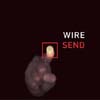 If a keyboard cowboy steals your voice it might just serve your server right for trying to read and burn the last of the Mohicans. With one foul swoop Colin Newman proclaims punk rock meaningless and declares the joy of his latest bastard 'heavy metal dancefloor' bad vibing it up like there's no tomorrow. Those four negative horsemen Wire celebrate the art of stopping, which is where it's at - addictive repetitive mega-riffing retooled on hardrive and nailed down fast in paranoiac fits. There is a lot of stopping but the big diginoise always starts up instantly, fleet of foot chasing rising temperatures. Three songs from this apocalyptic refraction of doomed cyber-slavery and secondhand information overload will have already battered your damaged drums long ago on the EP Read and Burn 01. Another trio burnt bright on the second 'close to creation cycle' six-song lowdown late last year, and the insanely catchy "Nice Streets Above," which is Send's only really upbeat tune, is lengthened a minute and seems to have gained more deep bass groove. This track was an early junkyard rifling in which Graham Lewis sampled and mangled a snatch of Colin Newman singing "Drill," but the mutation would be nigh on impossible to spot. Mutation is constantly hovering ghostlike behind many of the vicious scenes of Send. Cyclic evolution merges man and machine, catalogued obtusely in the closing pulsating monster "99.9" which might well be the most powerful track Wire have ever created, diving off sonar into unknown voids. The longest track is heralded by the shortest, a rare vocal appearance for that funny ol'professor of noise Bruce Gilbert, whose voice is buried in incomprehensible swathes of distortion as "Half Eaten" bounces gamely by on a jagged big beat tip flashing vivid images of burning oil wells into the listening mindbrain. This ravaged track is a wartorn counterpoint to Lewis' internet reportage machine-metal ode to the liberation of oppressed ladies, "The Agfers of Kodack." They do not take kindly to religious extremism and build up inexorably to find it "Spent" with drills and emergency alarm bells blaring against quick fix. No that isn't Killing Joke, sir. Amongst the four totally new songs, "Mr Marx's Table" will be familar to anyone who crossed the line and came a long way for a short stay at a Wire gig last year, but they've sped it up and remuscled it with hardwired precision. The weakest new one, and probably the weakest track on the album, is "Being Watched" which has slightly corny lyrics wherein some voyeur junkie protagonist wants Big Brother to spy on him in what is essentially a remake of "Take It" but sounds much more in tune with eighties Wire than any other featured track. Even if you'd like to give it up you'd never have the choice with a track of such ominous doom laden brilliance as "You Can't Leave Now" where a metaphorical restaurant is ransacked by Greedy as the Devil Dogs are set loose to deface him. The trap is sprung but there is a way out. All across the planet fires burn high as Wire fans blow up their computers in a ritual spew. Maybe guitars will be the instruments of the future after all? This album is so good it'd be worth annihilating 99.9 per cent of the human race to hear it, but luckily thanks to the arch kindness of the Newman you don't have to do that and if you buy it from posteverything.com they'll chuck in a bonus CD of Wire decimating Chicago last year. It's not hard to hear another unique event. Does that road ahead look quite uncertain? - Graeme Rowland
If a keyboard cowboy steals your voice it might just serve your server right for trying to read and burn the last of the Mohicans. With one foul swoop Colin Newman proclaims punk rock meaningless and declares the joy of his latest bastard 'heavy metal dancefloor' bad vibing it up like there's no tomorrow. Those four negative horsemen Wire celebrate the art of stopping, which is where it's at - addictive repetitive mega-riffing retooled on hardrive and nailed down fast in paranoiac fits. There is a lot of stopping but the big diginoise always starts up instantly, fleet of foot chasing rising temperatures. Three songs from this apocalyptic refraction of doomed cyber-slavery and secondhand information overload will have already battered your damaged drums long ago on the EP Read and Burn 01. Another trio burnt bright on the second 'close to creation cycle' six-song lowdown late last year, and the insanely catchy "Nice Streets Above," which is Send's only really upbeat tune, is lengthened a minute and seems to have gained more deep bass groove. This track was an early junkyard rifling in which Graham Lewis sampled and mangled a snatch of Colin Newman singing "Drill," but the mutation would be nigh on impossible to spot. Mutation is constantly hovering ghostlike behind many of the vicious scenes of Send. Cyclic evolution merges man and machine, catalogued obtusely in the closing pulsating monster "99.9" which might well be the most powerful track Wire have ever created, diving off sonar into unknown voids. The longest track is heralded by the shortest, a rare vocal appearance for that funny ol'professor of noise Bruce Gilbert, whose voice is buried in incomprehensible swathes of distortion as "Half Eaten" bounces gamely by on a jagged big beat tip flashing vivid images of burning oil wells into the listening mindbrain. This ravaged track is a wartorn counterpoint to Lewis' internet reportage machine-metal ode to the liberation of oppressed ladies, "The Agfers of Kodack." They do not take kindly to religious extremism and build up inexorably to find it "Spent" with drills and emergency alarm bells blaring against quick fix. No that isn't Killing Joke, sir. Amongst the four totally new songs, "Mr Marx's Table" will be familar to anyone who crossed the line and came a long way for a short stay at a Wire gig last year, but they've sped it up and remuscled it with hardwired precision. The weakest new one, and probably the weakest track on the album, is "Being Watched" which has slightly corny lyrics wherein some voyeur junkie protagonist wants Big Brother to spy on him in what is essentially a remake of "Take It" but sounds much more in tune with eighties Wire than any other featured track. Even if you'd like to give it up you'd never have the choice with a track of such ominous doom laden brilliance as "You Can't Leave Now" where a metaphorical restaurant is ransacked by Greedy as the Devil Dogs are set loose to deface him. The trap is sprung but there is a way out. All across the planet fires burn high as Wire fans blow up their computers in a ritual spew. Maybe guitars will be the instruments of the future after all? This album is so good it'd be worth annihilating 99.9 per cent of the human race to hear it, but luckily thanks to the arch kindness of the Newman you don't have to do that and if you buy it from posteverything.com they'll chuck in a bonus CD of Wire decimating Chicago last year. It's not hard to hear another unique event. Does that road ahead look quite uncertain? - Graeme Rowland
samples:
We know that sometimes these CDs are somewhat challenging to find, which is why we have a community section which can be used to obtain nearly everything available on this site. |